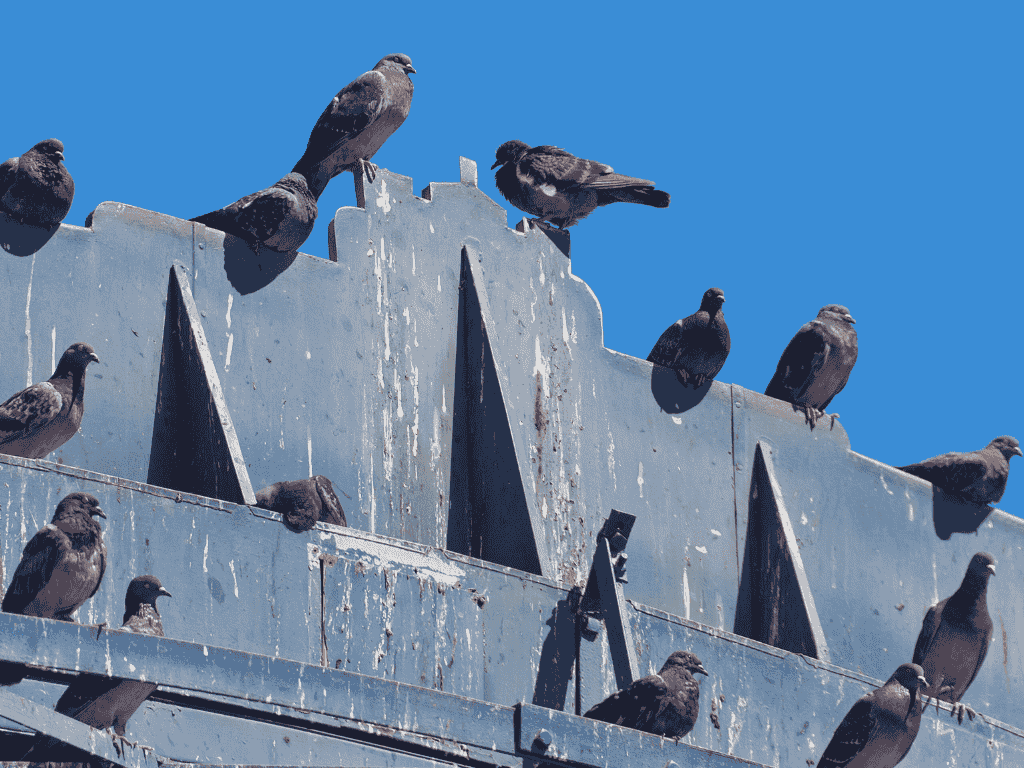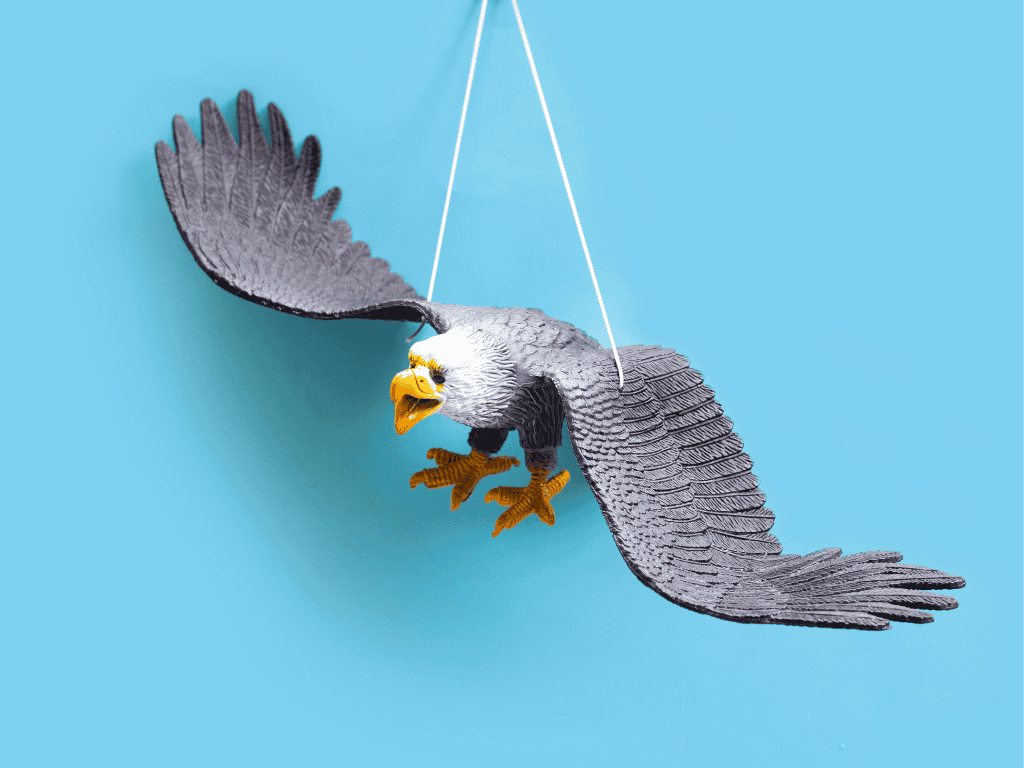Pigeons are often thought to be attractive in small amounts but they can turn into a serious problem when they are overpopulated in an area. Their droppings could damage the property, spread disease, and cause unsightly mess. In addition their agressive behavior could make other birds afraid as well as wildlife. If you’re looking for methods to deter pigeons naturally this guide offers a complete listing of eco-friendly, humane and efficient methods to keep the birds in check without harming the birds or the surrounding environment.

Why Repel Pigeons Naturally?
Using natural deterrents isn’t only kinder to birds—it’s also safe for your pets, the environment, and humans. Chemical repellents and poisons can harm other animals and pollute the ecosystem. Natural solutions are sustainable, low-cost, and typically non-toxic.
For a broader set of ideas on keeping birds away, check out our guide on How to Keep Birds Away from Your House: Top 13 Effective Tips.
Understanding Pigeon Behavior
Before you start exploring methods to repel pigeons It is crucial to comprehend the reasons why pigeons flock by your yard in the first in the first place. Pigeons are attracted to areas that offer:
- food sources Open garbage bins spilled food, bird feeders are a major draw.
- Shelter Pigeons search for rooftops, ledges, and other areas that are protected to nest and roost.
- Water Puddles, fountains, as well as other water sources may draw birds.
By taking care to address these drawbacks and attracting factors, it is possible to make your home less attractive to the pigeons.
Natural Methods to Repel Pigeons
Here are a few that are the best natural methods to deter pigeons
1. Remove Food Sources
- Safe Trash Bins Make sure to use lids that are sealed tightly to prevent the pigeons from gaining access to garbage.
- Clean up spills Clean up regularly outdoor areas for eating and remove any food, seeds or other items that are spilled.
- Limit bird feeding If you have bird feeders, you should use design that is pigeon proof and clean off any fallow seeds.
2. Modify Roosting and Nesting Sites
- Set up Bird Spikes Put spikes on roofs, ledges and other flat surfaces on which the pigeons prefer to roost. These spikes aren’t harmful, but they can make it difficult for pigeons to be able to settle.
- Use Sloped surfaces Install bent sheets or boards on flat surfaces to stop birds from perching.
- Block entries Secure the openings within attics, in eaves and other places where pigeons may nest.
3. Use Visual Deterrents

- Reflective objects: Shiny objects such as CDs or aluminum foil strips or reflective tape around problem regions. A flashing lighting and motion will frighten pigeons away.
- Decoys for Predators Set up fake owls, hawks or even snakes, in places where pigeons gather. They should be moved frequently to keep their effectiveness.
- Fear Balloons Use balloons that have big, reflective eyes painted on them. They mimic the appearance of predators and may discourage the pigeons.
4. Employ Sound Deterrents
- Wind Chimes The sound and the movement of wind chimes may deter the pigeons from entering an area.
- Ultrasonic devices They emit high-frequency sound that is uncomfortable for pigeons, but are not heard to humans. Be careful, as certain devices can harm wildlife.
- Predator calls recorded Record recorded calls of birds that hunt, like falcons or hawks to scare away pigeons.
5. Use Natural Repellent Scents
- Essential oils Pigeons are not a fan of strong scents such as peppermint, eucalyptus, as well as citrus. Combine a couple of drops these oils with water, and spray the solution over troublesome zones.
- Spices Sprinkle the spices such as cinnamon, cayenne pepper or black pepper around areas where pigeons rest. Apply the spice after rain or wind.
- Vinegar spray a mix of water and vinegar on surfaces to make unpleasant odors for pigeons.
6. Create Physical Barriers
- Netting Install bird netting on gardens, balconies or any other places where pigeons can be a problem. Make sure the net is taut and securely fixed.
- wire Mesh Wire Mesh: Wire mesh is used to close off gaps or to create barriers on rooftops and ledges.
- Slide Barriers Install sliding screens or panels on balconies or windows to stop pigeons from coming in.
7. Use Water as a Deterrent
- Motion-Activated Sprinklers Install sprinklers that respond when they detect the movement. Pigeons are not fond of water, and be careful around areas where they may be wet.
- water spray bottle If you spot the presence of pigeons in an location, you can gently spray them with water to get them to go elsewhere.
8. Encourage Natural Predators

- Draw Birds Of Prey Make sure you create an environment that is attractive to natural predators of pigeons like hawks or falcons. The installation of nesting boxes or perches for the birds could be helpful.
- Adopt the Cat While it’s not the ideal solution for everyone, a cat may aid in keeping pigeons off your property.
9. Plant Pigeon-Repelling Vegetation to Repel Pigeons Naturally
- Thorny Plants: Plant vines or bushes with thorns such as bougainvillea or roses, on areas that pigeons are known to roost. The spongy surface can deter birds from taking off.
- strong-scented herbs Grow plants like mint, lavender or rosemary in troublesome zones. Their strong scent could deter birds.
10. Maintain a Clean Environment
- Removal of Nesting Materials Cleaning up regularly leaves, twigs, and other items that pigeons may construct nests with.
- The Power Wash Surfaces Cleans up the ledges of debris and droppings roofs, roofs, and other surfaces, making the area look less attractive.
Tips for Long-Term Success
- Be consistent Pigeons are persistent and can take some time to adjust to the new methods of deterring. Make sure to apply these techniques consistently to get the most effective outcomes.
- Mix Methods Utilizing a mix of deterrents (e.g. visual, auditory and scent-based) will increase the effectiveness of.
- Monitor and adapt regularly to assess the situation and modify your strategies according to the need. Pigeons could become used to certain deterrents with time.
Why Avoid Harmful Methods to Repel Pigeons?
While it is tempting to employ harmful methods, such as traps or poisons These methods are not only unnatural, they are also detrimental. The killing or harming of pigeons could result in:
- More Populations Pigeons breed rapidly and the removal of only a few birds may not be enough to solve the issue.
- Harm to other Wildlife Poisons and traps may accidentally hurt other birds, pets or even human beings.
- Legal Questions In a variety of regions, pigeons are protected under the law. Any harm to them could result in sanctions or fines.
For further insights into humane methods for pigeon control, you might also find our guide on How to Get Rid of Pigeons on Your Roof: A Detailed Guide helpful.
Conclusion
Eliminating pigeons naturally is a sustainable, humane and efficient method to safeguard your home and create a tidy and safe environment. By knowing the behavior of pigeons, and using a variety of deterrents – such as taking away sources of food, using scent and visual repellents, and building physical barriers — you will be able to keep pigeons the back of your mind. Be patient and consistent are essential. With time and effort you will be able to enjoy a bird-free space without resorting to dangerous methods.
